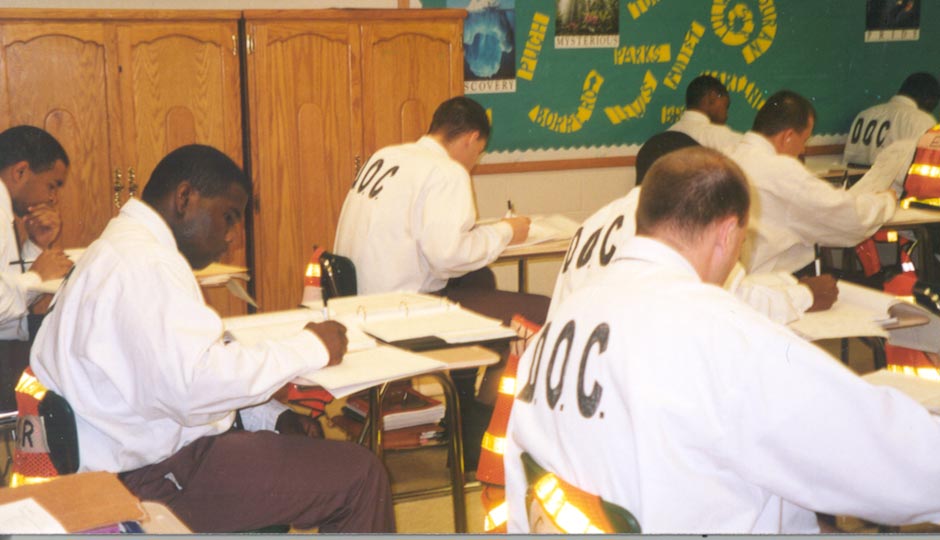Pennsylvania Inmates Perform Well Above National Average on GED

Photo courtesy of Pennsylvania Department of Corrections
The Pennsylvania Department of Corrections recently announced that inmates in the state scored higher than the national average on the GED for the third year in a row. 82 percent passed, compared to the national rate of 76 percent.
Inmates who receive higher education — whether a GED, college work, or vocational training — have a greatly reduced risk of recidivism. This is important, since the vast majority of incarcerated people will be released at some point in their lifetime, according to the Department of Corrections’ statement.
The process that Pennsylvania’s inmates go through is pretty simple, according to Terri Fazio, acting director of the bureau of correction education. All inmates meet with an educational guidance counselor upon being admitted into the prison. The staff searches for records of an existing GED or high school diploma. Inmates without them are mandated to attend a minimum of 360 hours of the class, which is paid for by the state.
The schools at the prisons stress passing the Test of Adult Basic Education, or TABE, before moving on to the GED. Additionally, inmates are given time to familiarize themselves with the computers that they’ll be using to take the test. Fazio pointed out that inmates who have been incarcerated for a long time may not be familiar with computers, which may distract them while taking the test. The test became electronic in 2014.
Fazio largely credited the teachers and principals at the various institutions, saying that they “have really taken it upon themselves to get the inmates prepared.”
A large emphasis is placed on math, since the skills tested on the GED are typically more abstract that the normal person uses in their day to day life. In addition to math, the test also includes an extended response essay, a science section, and a social studies section.
Each year, the different institutions across the state have a graduation ceremony that guests of the graduates can attend.
This year’s numbers are an improvement over last year’s already high marks, when 75 percent of inmates passed, compared to 67 percent nationally.


